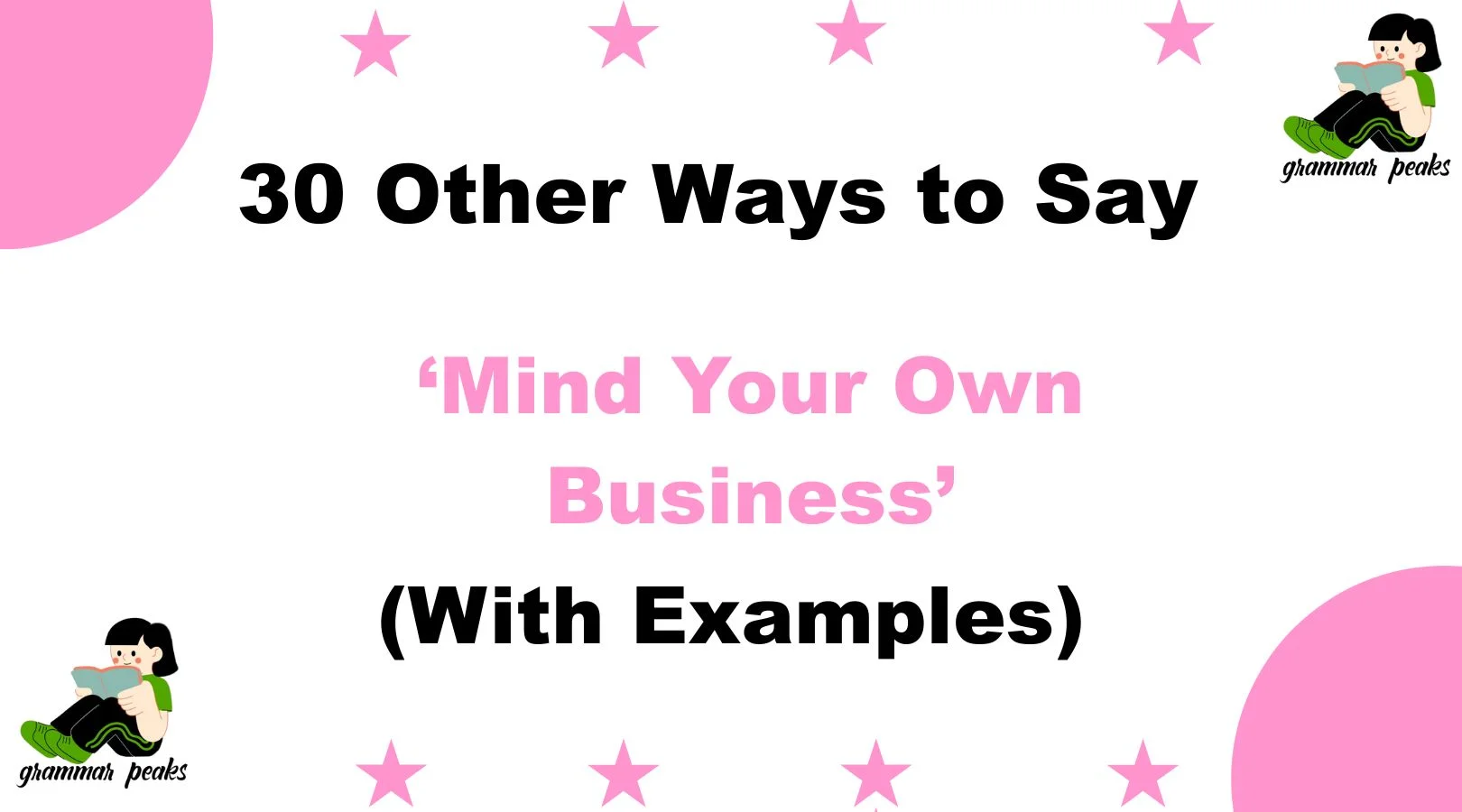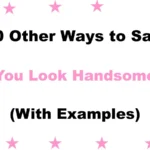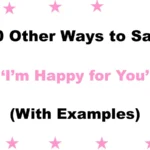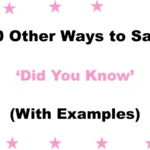Finding the right words to express a sensitive message can make all the difference. When we want to tell someone to respect our privacy or stay out of matters that don’t concern them, using thoughtful and warm phrases can soften the message and keep relationships intact.
Saying “Mind your own business” directly might sometimes feel harsh or confrontational, but there are many gentler, more empathetic ways to communicate the same idea. This article offers 30 alternative phrases, each with detailed explanations, examples, and guidance on when and how to use them — so you can express yourself with care and respect.
What Does “Mind Your Own Business” Mean?
“Mind your own business” is a way to ask someone to stop interfering in matters that do not involve them. It’s about setting boundaries and encouraging respect for personal privacy. While direct, the phrase can sometimes sound abrupt or rude, which is why alternative expressions can help convey the same message in a kinder way.
When to Use “Mind Your Own Business”
You might want to use this phrase or its alternatives when someone is asking questions or commenting on things that feel too personal or irrelevant to them. It’s important to consider the situation, your relationship with the person, and how firm or gentle you want to be in your response.
Is It Professional or Polite to Say “Mind Your Own Business”?
Generally, the phrase “mind your own business” is not considered professional or polite in formal settings. It’s often seen as blunt or dismissive. For workplace or delicate social interactions, using more tactful alternatives is recommended to maintain respect and avoid conflict.
Pros and Cons of Saying “Mind Your Own Business”
Pros:
- Clearly establishes boundaries
- Quickly communicates discomfort or disinterest in sharing
Cons:
- Can offend or hurt feelings
- May escalate conflicts if used harshly
- Seen as unprofessional in many settings
Synonyms for “Mind Your Own Business”
- I’d rather keep this private
- This is something I’m handling myself
- I appreciate your concern, but I’ve got it covered
- Let’s focus on what’s relevant here
- I’d prefer not to discuss this right now
- Thanks for your interest, but it’s a personal matter
- I’m not comfortable sharing that
- That’s something I need to sort out on my own
- Let’s respect each other’s privacy
- I’m focusing on my own things for now
- I’m working through it privately
- I’d rather not get into that
- Thanks for understanding that this is personal
- I hope you understand it’s my personal space
- I prefer to keep that between me and myself
- That’s not something I want to discuss
- I’m keeping that information confidential
- I’d like to keep that off the table
- I’m handling it internally
- That’s a private matter
- Let’s stick to the topic at hand
- I’m managing that in my own way
- I’m not ready to talk about that yet
- I hope you respect my boundaries
- That’s for me to decide
- I’m taking care of that personally
- I’d rather not involve others in this
- I prefer to keep my affairs private
- That’s something I’m sorting out quietly
- I trust you’ll understand my need for privacy
1. I’d Rather Keep This Private
Definition: A polite way to ask someone not to inquire further because the subject is personal.
Explanation: This phrase sets a boundary gently by emphasizing the desire for privacy without sounding confrontational.
Scenario Example: When a colleague asks about your personal life, you might say, “I’d rather keep this private for now.”
Best Use: In social or professional contexts where maintaining politeness is important.
Worst Use: When the other person is persistent and this polite hint is ignored.
Tone: Warm, respectful, and firm.
2. This Is Something I’m Handling Myself
Definition: Indicates personal responsibility and preference to manage an issue without outside involvement.
Explanation: This phrase politely informs others that you do not want their interference or advice.
Scenario Example: If a friend offers unsolicited advice on a family matter, say, “Thanks, but this is something I’m handling myself.”
Best Use: To discourage intervention while remaining courteous.
Worst Use: When used sarcastically, which can sound dismissive.
Tone: Calm, self-assured, respectful.
3. I Appreciate Your Concern, but I’ve Got It Covered
Definition: Acknowledges the other person’s interest or care, but asserts control over the situation.
Explanation: This phrase balances gratitude with a gentle boundary, signaling you don’t want further involvement.
Scenario Example: A neighbor tries to help with your personal problems, and you respond, “I appreciate your concern, but I’ve got it covered.”
Best Use: When you want to keep the relationship positive but clear about boundaries.
Worst Use: If said in a dismissive tone, it may offend.
Tone: Polite, appreciative, clear.
4. Let’s Focus on What’s Relevant Here
Definition: Redirects attention away from personal matters to the subject at hand.
Explanation: This phrase steers the conversation toward appropriate topics without directly confronting the other person.
Scenario Example: During a meeting, if someone asks an unrelated personal question, say, “Let’s focus on what’s relevant here.”
Best Use: Professional or group settings where off-topic inquiries arise.
Worst Use: When the question is relevant but sensitive—might seem dismissive.
Tone: Professional, firm, neutral.
5. I’d Prefer Not to Discuss This Right Now
Definition: A gentle refusal to engage in conversation about a certain topic at the moment.
Explanation: This phrase respects your own timing and emotional readiness without shutting down the other person completely.
Scenario Example: When asked about a difficult issue, you might say, “I’d prefer not to discuss this right now.”
Best Use: When you want to postpone or avoid discussion temporarily.
Worst Use: Overused—may come across as evasive.
Tone: Polite, reserved, thoughtful.
6. Thanks for Your Interest, but It’s a Personal Matter
Definition: Politely acknowledges the question but clarifies it’s private.
Explanation: Shows appreciation for curiosity while setting clear limits on sharing.
Scenario Example: When someone asks about your relationship status, you can say, “Thanks for your interest, but it’s a personal matter.”
Best Use: When you want to remain courteous but firm.
Worst Use: Can sound formal or distant if the tone is not warm.
Tone: Respectful, polite, formal.
7. I’m Not Comfortable Sharing That
Definition: Expresses personal discomfort with sharing certain information.
Explanation: Highlights your feelings rather than focusing on the other person’s behavior, which can reduce tension.
Scenario Example: If asked about a sensitive health issue, say, “I’m not comfortable sharing that.”
Best Use: When emotional boundaries need to be protected.
Worst Use: In casual or humorous settings where it might seem overly serious.
Tone: Honest, gentle, personal.
8. That’s Something I Need to Sort Out on My Own
Definition: Emphasizes personal responsibility and the need for privacy in resolving an issue.
Explanation: A respectful way to indicate independence in handling matters.
Scenario Example: If someone tries to intervene in your financial decisions, say, “That’s something I need to sort out on my own.”
Best Use: When asserting autonomy without offending.
Worst Use: If the other person is trying to help sincerely, it may sound harsh.
Tone: Firm, respectful, clear.
9. Let’s Respect Each Other’s Privacy
Definition: A mutual request to maintain boundaries.
Explanation: Encourages a shared understanding rather than placing blame or shutting down dialogue.
Scenario Example: When a friend asks personal questions in a group, say, “Let’s respect each other’s privacy.”
Best Use: Group or social settings where privacy is valued by all.
Worst Use: If the group does not value privacy, this may fall flat.
Tone: Inclusive, polite, gentle.
10. I’m Focusing on My Own Things for Now
Definition: Indicates a preference to concentrate on your personal matters without outside input.
Explanation: A soft way to close the door on unwanted advice or curiosity.
Scenario Example: When friends ask about your career plans, say, “I’m focusing on my own things for now.”
Best Use: Casual, personal conversations.
Worst Use: If used repeatedly, it might seem dismissive.
Tone: Casual, polite, respectful.
11. I’m Working Through It Privately
Definition: Indicates that you are handling an issue on your own without outside involvement.
Explanation: This phrase signals your preference for privacy and self-management in a calm and respectful way.
Scenario Example: If a family member asks about your personal struggles, you can say, “I’m working through it privately.”
Best Use: When you want to communicate privacy without sounding dismissive.
Worst Use: Might feel distant if overused with close friends.
Tone: Thoughtful, reserved, polite.
12. I’d Rather Not Get Into That
Definition: A gentle way to avoid discussing a specific topic.
Explanation: This phrase sets a clear boundary without explaining reasons, useful when the topic feels too personal.
Scenario Example: If asked about your salary, respond with, “I’d rather not get into that.”
Best Use: When deflecting sensitive questions politely.
Worst Use: If repeated often, it may sound evasive.
Tone: Polite, firm, subtle.
13. Thanks for Understanding That This Is Personal
Definition: Expresses gratitude for respecting your privacy.
Explanation: It both acknowledges the other person’s interest and sets a boundary warmly.
Scenario Example: When someone backs off after you hint at privacy, say, “Thanks for understanding that this is personal.”
Best Use: To maintain goodwill while asserting boundaries.
Worst Use: If the person does not respect boundaries, it may be ignored.
Tone: Appreciative, warm, respectful.
14. I Hope You Understand It’s My Personal Space
Definition: Requests respect for your emotional or physical privacy.
Explanation: This phrase invites empathy and mutual respect in a gentle manner.
Scenario Example: If a coworker asks intrusive questions, you might say, “I hope you understand it’s my personal space.”
Best Use: To encourage respectful distance in relationships.
Worst Use: Can seem passive if the listener is insensitive.
Tone: Soft, respectful, sincere.
15. I Prefer to Keep That Between Me and Myself
Definition: Emphasizes the topic is for your eyes and thoughts only.
Explanation: This phrase highlights your wish to keep certain things confidential.
Scenario Example: When asked about your future plans, say, “I prefer to keep that between me and myself.”
Best Use: When you want to keep plans or thoughts private.
Worst Use: If used frequently, may seem secretive.
Tone: Personal, thoughtful, calm.
16. That’s Not Something I Want to Discuss
Definition: A clear but polite refusal to talk about a certain subject.
Explanation: This phrase directly sets a boundary without harshness.
Scenario Example: If pressed about a past relationship, say, “That’s not something I want to discuss.”
Best Use: When directness is needed but politeness maintained.
Worst Use: If the tone is cold, it may come off as rude.
Tone: Firm, polite, straightforward.
17. I’m Keeping That Information Confidential
Definition: States that you’re deliberately protecting certain details.
Explanation: This phrase is useful in professional or sensitive personal contexts.
Scenario Example: When asked about company details, say, “I’m keeping that information confidential.”
Best Use: Formal or professional settings.
Worst Use: Could sound evasive if used too often in casual talk.
Tone: Professional, respectful, clear.
18. I’d Like to Keep That Off the Table
Definition: Politely requests that a topic not be discussed.
Explanation: This idiomatic phrase signals that the subject is closed for discussion.
Scenario Example: In a meeting, if someone brings up a sensitive issue, say, “I’d like to keep that off the table.”
Best Use: Professional or formal settings.
Worst Use: May sound too formal or stiff in casual conversations.
Tone: Professional, firm, polite.
19. I’m Handling It Internally
Definition: Indicates the matter is being managed privately within a group or personally.
Explanation: This phrase is often used in workplace or family contexts to avoid external interference.
Scenario Example: When coworkers inquire about a team conflict, respond, “I’m handling it internally.”
Best Use: Professional and group settings.
Worst Use: May feel distant if overused in personal relations.
Tone: Professional, calm, assured.
20. That’s a Private Matter
Definition: A straightforward way to state that the issue is not open for discussion.
Explanation: This phrase is clear and formal, signaling boundaries.
Scenario Example: If someone asks about your health, you might say, “That’s a private matter.”
Best Use: When you want a simple, direct boundary.
Worst Use: Could come off as cold if not softened by tone.
Tone: Formal, clear, firm.
21. Let’s Stick to the Topic at Hand
Definition: Redirects focus back to the current subject to avoid personal questions.
Explanation: Useful for keeping discussions professional or relevant.
Scenario Example: In meetings, if someone digresses into personal topics, say, “Let’s stick to the topic at hand.”
Best Use: Professional or group discussions.
Worst Use: May seem dismissive in casual conversation.
Tone: Professional, firm, neutral.
22. I’m Managing That in My Own Way
Definition: Expresses autonomy and personal approach to an issue.
Explanation: Politely signals that you do not need input.
Scenario Example: When asked about parenting choices, reply, “I’m managing that in my own way.”
Best Use: Personal conversations where you want to assert independence.
Worst Use: If the tone is defensive, it might sound off-putting.
Tone: Calm, respectful, confident.
23. I’m Not Ready to Talk About That Yet
Definition: Postpones discussion, indicating a need for time or privacy.
Explanation: Shows openness to discuss later, but protects current boundaries.
Scenario Example: If someone asks about a recent breakup, say, “I’m not ready to talk about that yet.”
Best Use: Emotional or sensitive situations.
Worst Use: If repeated often, might appear evasive.
Tone: Honest, gentle, reserved.
24. I Hope You Respect My Boundaries
Definition: A polite request for understanding and respect regarding personal limits.
Explanation: Encourages the other person to be mindful and considerate.
Scenario Example: When a friend keeps asking personal questions, say, “I hope you respect my boundaries.”
Best Use: When you want to assert limits kindly.
Worst Use: May not work with disrespectful people.
Tone: Respectful, sincere, firm.
25. That’s For Me to Decide
Definition: Affirms your right to make your own choices.
Explanation: Politely sets limits on input or interference.
Scenario Example: When someone comments on your lifestyle choices, say, “That’s for me to decide.”
Best Use: To assert autonomy respectfully.
Worst Use: If used abruptly, might sound defensive.
Tone: Firm, respectful, confident.
26. I’m Taking Care of That Personally
Definition: Communicates personal responsibility and preference to handle matters privately.
Explanation: A warm way to discourage interference while maintaining politeness.
Scenario Example: When someone offers help with a family issue, say, “I’m taking care of that personally.”
Best Use: When you want to thank but decline involvement.
Worst Use: Could sound dismissive if the tone is harsh.
Tone: Polite, warm, clear.
27. I’d Rather Not Involve Others in This
Definition: Requests privacy by limiting the circle of people involved.
Explanation: Sets a boundary about sharing personal matters.
Scenario Example: If a colleague tries to bring others into your issue, say, “I’d rather not involve others in this.”
Best Use: To maintain discretion in sensitive situations.
Worst Use: May appear secretive if overused.
Tone: Calm, polite, firm.
28. I Prefer to Keep My Affairs Private
Definition: A formal way to state your preference for privacy.
Explanation: Useful in serious or professional settings.
Scenario Example: When asked about legal or financial matters, say, “I prefer to keep my affairs private.”
Best Use: Professional, formal contexts.
Worst Use: Could sound distant in casual conversation.
Tone: Formal, clear, respectful.
29. That’s Something I’m Sorting Out Quietly
Definition: Indicates you are addressing an issue without involving others or making it public.
Explanation: A gentle way to assert privacy and discretion.
Scenario Example: If asked about a family dispute, say, “That’s something I’m sorting out quietly.”
Best Use: When emphasizing discretion.
Worst Use: Might seem vague if clarity is needed.
Tone: Thoughtful, calm, reserved.
30. I Trust You’ll Understand My Need for Privacy
Definition: Expresses confidence in the listener’s empathy regarding your privacy needs.
Explanation: A warm, trusting way to ask for respect.
Scenario Example: When friends ask personal questions, say, “I trust you’ll understand my need for privacy.”
Best Use: To maintain positive relationships while asserting boundaries.
Worst Use: If trust is broken, it may not be effective.
Tone: Warm, sincere, respectful.
Conclusion
Expressing the idea of “mind your own business” with warmth and care is a valuable communication skill. The 30 alternatives above help you maintain your personal boundaries while preserving relationships and showing respect. By choosing phrases that fit the situation and your tone, you can assert your privacy thoughtfully and effectively. Remember, how you say something can be just as important as what you say — and with these alternatives, you have many kind and clear ways to protect your space without alienating others.
Frequently Asked Questions
1. Is it rude to tell someone to mind their own business?
Telling someone to mind their own business can come across as blunt or rude if said directly. However, using more thoughtful and polite alternatives can help you set boundaries respectfully, preserving relationships while protecting your privacy.
2. When is the best time to use these alternatives?
These phrases work best when you want to gently assert your privacy or avoid uncomfortable topics without offending others. They are especially helpful in personal relationships, work settings, or social situations where kindness and respect matter.
3. How can I keep my tone polite when saying “mind your own business”?
Focus on using warm and empathetic phrases from the alternatives list, such as “I hope you understand this is personal” or “Thanks for respecting my boundaries.” Your tone of voice and body language also play a big role in making your message sound polite and caring.
4. Can these alternatives help in professional settings?
Yes! Many alternatives like “I’m keeping that information confidential” or “Let’s stick to the topic at hand” are well-suited for professional environments where maintaining respect and discretion is essential.
5. What should I do if someone repeatedly ignores my boundaries?
If someone continues to disrespect your privacy despite polite requests, it may be necessary to be more direct or seek support from a mediator, supervisor, or trusted third party. Remember, your well-being and boundaries are important and deserve to be respected.

Mariah Cannon is a dedicated Senior Content Specialist at GrammarPeaks, known for her clear, engaging writing and deep knowledge of English grammar and usage. With a background in linguistics and years of experience in content development, Mariah crafts informative and accessible articles that empower readers to master the nuances of the English language. Her work reflects a commitment to clarity, education, and helping others express themselves with confidence.





